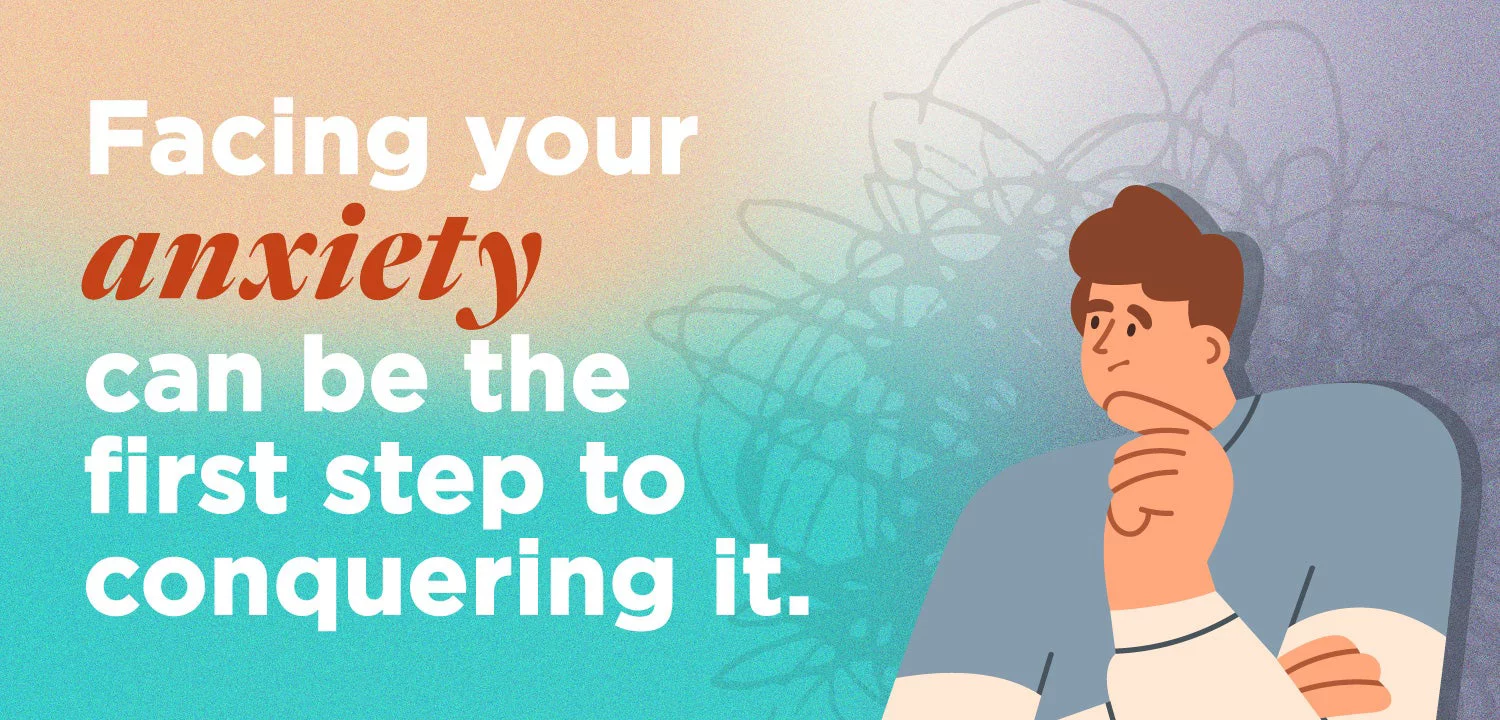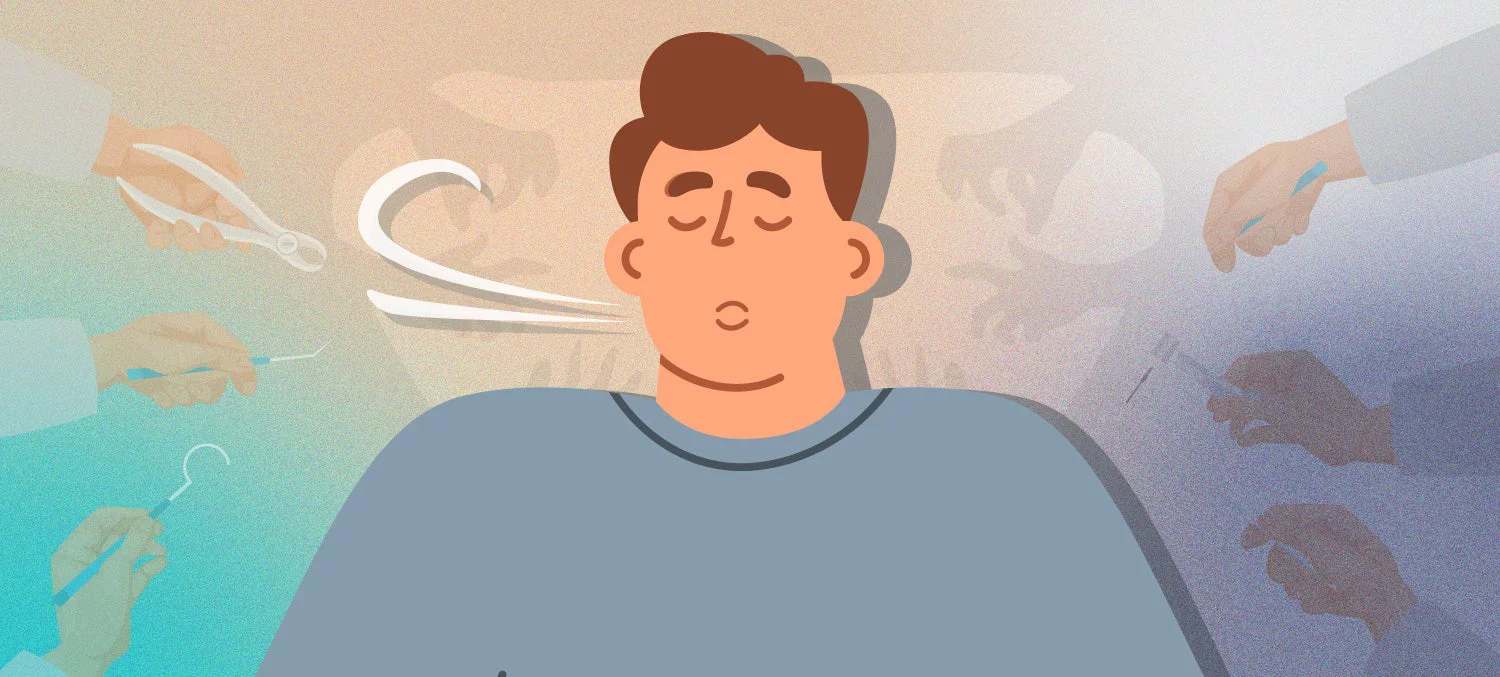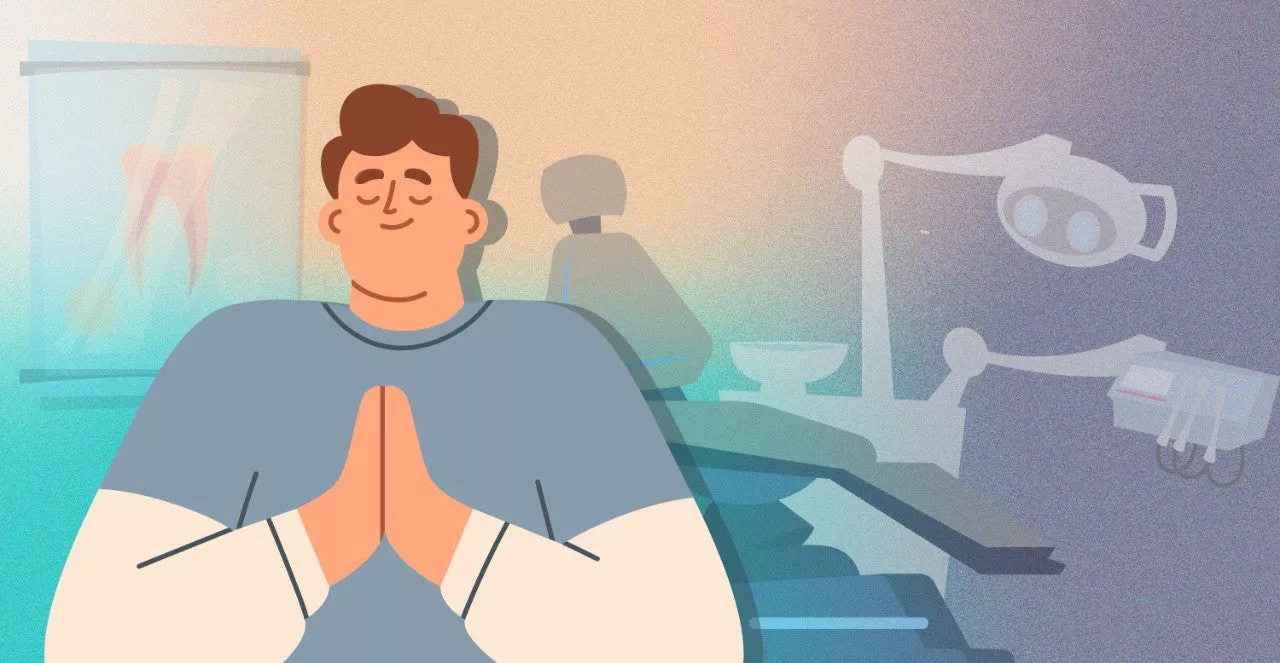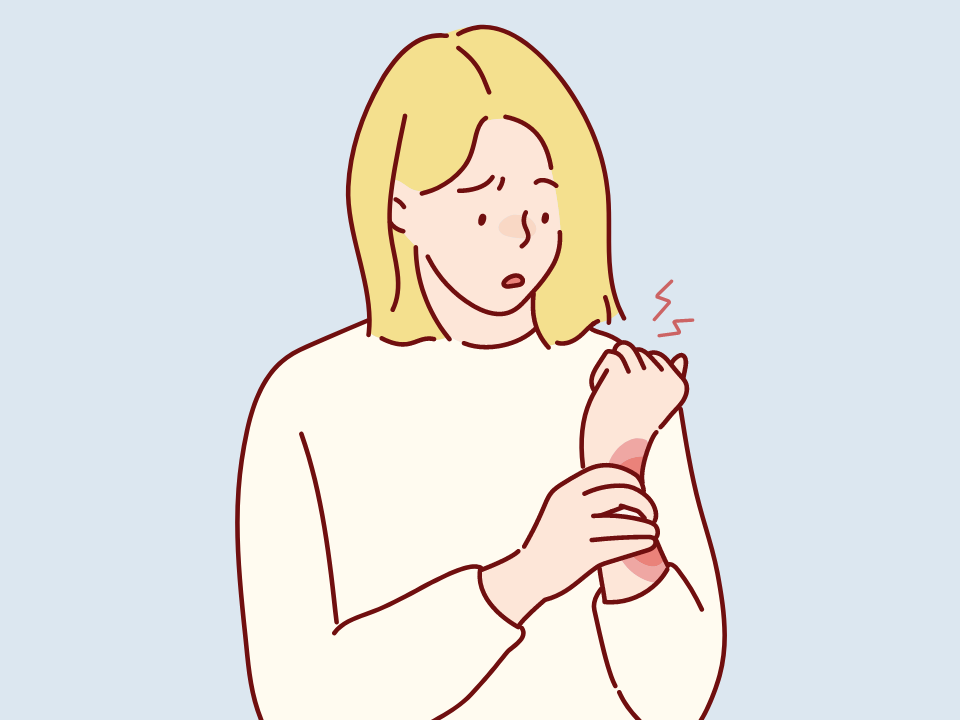Feeling uneasy at the dentist is nothing to be embarrassed about. Even if you have never had a bad experience at a dental appointment, it can be common to feel uncomfortable to have a dentist stick their fingers and shiny, metal tools into your mouth. But like with most forms of anxiety, strategies and tools exist that can teach you how to relax at the dentist's office so you can be at ease as your teeth get the necessary attention they need to stay healthy.
Understanding Dental Anxiety
Facing your anxiety can be the first step to conquering it. Recognizing common signs and triggers for dental anxiety will help you know how to keep calm at the dentist. Before stepping foot in the dental office, consider which part of the experience at a dentist appointment makes you uncomfortable. A few situations that cause dental anxiety include:
- Fear that the dental work will be painful
- Self-consciousness about what your teeth look like
- Not being able to watch what is happening in your mouth
- The proximity of the dentist to your face
- Having injections in your mouth
- Hearing the sound of the drill
- Having a bad experience at the dentist's office in the past
- Discomfort with keeping your mouth open during the exam
To figure out which part of a dental appointment causes the most anxiety, think back to the first time you felt nervous going to the dentist. Close your eyes and, in your mind, walk through the experience of going to the dentist and note when you feel the most anxious. Visualize going through the following steps of a typical dentist appointment:
- Arriving and checking in
- Sitting in the waiting room
- Walking back to the dental chair
- Talking with the dentist
- Opening your mouth for your dentist to look inside
- A specific procedure or sound during a routine cleaning
- Leaving out the door
Sort out the moments you were at ease and which events caused you discomfort to think about.
Reading this list of common causes for dental anxiety may help you narrow down what causes you to worry or panic. In addition, singling out your anxiety triggers will allow you to tackle one problem at a time.
Choosing the Right Dentist
With approximately 36% of the population affected by dental anxiety, many dental practices are now attempting to become more appealing to anxious patients. If you are on the search for a dentist who is empathetic toward people with dental anxiety, look for things they may offer that would be helpful to you, such as:
- A warm or weighted blanket to help you stay calm
- Music during cleaning to distract your mind
- TV during a procedure to distract your attention
- Nitrous oxide or laughing gas to help you relax
- Oral sedatives to take the edge off
- Full sedation so you don't have to be awake during any part of the exam and procedure
But a huge factor when deciding which dentist is the best fit for you is if you feel comfortable opening up and being honest with the dentist about your anxiety. Telling a dentist when you feel uncomfortable and hearing words of reassurance and comfort can go a long way in conquering your fear of the dentist.
Preparing for the Appointment
After making your appointment with the dentist, you have a finite amount of time to gear up before heading to the dental office. You can use the days or weeks after setting your appointment to learn techniques on how to relax at the dentist and how to deal with your dental anxiety. Ways to prepare for your dental appointment include:
Schedule a Consultation With the Dentist
Don't let the first time you meet the dentist be when you sit in the chair for an examination or procedure. If you are dealing with intense dread leading up to your dental appointment, go in ahead of your appointment and meet the dentist without the added weight of having to sit back in the chair waiting for your examination to begin. Also, check out the waiting room and discuss with the receptionist any concerns you have.
If your fear stems from not knowing what is happening, look up videos of the same procedure or routine cleanings to have a good idea of what will happen in your mouth.
Drinking caffeine in coffee or soft drinks may be fine at times, but it can also cause you to feel more nervous. The jitteriness you get from caffeine will not help you calm your nerves when sitting in the dental chair.
Don't try to pack in any other errands on the day of your appointment. Allow your mind to relax with having less on your plate.
Lack of sleep can make anyone feel anxious. Getting a full night's sleep the night before your appointment will allow you to wake up feeling good and refreshed.
Coping Strategies During Your Dental Visit
Even if you do the work of preparing beforehand for your dental appointment, there will be moments as you sit in the chair when your anxiety levels rise. In those moments, you can use coping strategies to calm yourself down so you can get the necessary dental work that your mouth needs.
You can practice these techniques at home as you prepare for your appointment so they will feel like second nature when you are in the dentist's chair. Strategies to use during your dental appointment include:
Come prepared with a device to watch a movie or show and earbuds or headphones to listen to the audio or play calming music.
Having someone there who you trust and who is a calming presence in your life. This can be a great asset when you get nervous at the dentist. A friend can not only reassure you when you get nervous, but they can also distract you with conversations about anything other than what is happening in your mouth.
Meditation does not have to occur in a quiet room while you sit with your legs crossed. With practice, you can meditate anywhere. If you feel your anxiety rising, close your eyes and focus your attention on specific places where you may be holding tension and relax those muscles. Start by focusing on the top of your head and work your way to your face, shoulders, and hands, continuing down to your toes until your body is completely relaxed.
While meditating, pay attention to your breathing by slowly pulling the air in through your nose until your lungs are full, holding it in for a couple of seconds, then breathing out of your mouth. This will help you calm your body and thoughts by bringing more oxygen into your body. In addition, the sound of your breath going in and out can help you not dwell on any nervousness you may feel in the dentist's chair.
Remembering a happy or peaceful moment in your life and focusing on that feeling while the dentist is at work is an excellent way to keep yourself calm while at the dentist.
After you make it through the dental appointment, your anxiety may vanish, but it is important to realize the mental workout you went through to keep yourself calm in a stressful situation. Reward yourself by doing something to let your mind and body fully relax after your dental appointment. A few self-care ideas are:
Draw a warm bath with a soothing bath bomb or scented Epsom salts bought especially as an after-dentist treat.
Go for a Walk in the Park
Clearing your head with a relaxing nature walk can help calm your nerves after a dentist appointment.
Processing your anxiety after the appointment by talking with a friend over dinner or board games can help you let go of the anxiety you were holding in during the appointment.
Facing fears can be quite exhausting. Turn on a soothing white noise or your favorite instrumental playlist and give yourself permission to take a long nap.
After making it through the dental appointment, you may have feelings of relief, tension, happiness, or frustration that can be hard to deal with all at once. Write down how you feel post-appointment so you can go over it later when you are relaxed. Just getting your thoughts on paper can be a very calming exercise.
You may be worn out after your appointment. Binge-watching a favorite show or watching a comfort movie can help you to relax.
Calm Dental Anxiety by Finding the Best Dentist for You
Do not let your oral health suffer due to dental anxiety. The tools and strategies listed here can help you overcome your fear of the dentist. Communication with your dentist is crucial, and finding a dentist that helps to calm your nerves cannot be overstated.
If you are looking for a dentist with experience treating patients with dental anxieties, check out Smile Generation's Find a Dentist tool.
Find your trusted, local dentist today!
- Beaton, Laura, Ruth Freeman, and Gerry Humphris. "Why Are People Afraid of the Dentist? Observations and Explanations." PubMed, 20 Dec. 2013, https://www.ncbi.nlm.nih.gov/pmc/articles/PMC5586885/
Smile Generation blog articles are reviewed by a licensed dental professional before publishing. However, we present this information for educational purposes only with the intent to promote readers’ understanding of oral health and oral healthcare treatment options and technology. We do not intend for our blog content to substitute for professional dental care and clinical advice, diagnosis, or treatment planning provided by a licensed dental professional. Smile Generation always recommends seeking the advice of a dentist, physician, or other licensed healthcare professional for a dental or medical condition or treatment.










